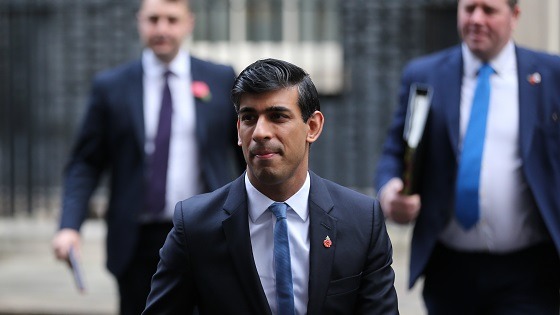 Will the new Prime Minister’s appointment help calm the turbulent investment markets?
Will the new Prime Minister’s appointment help calm the turbulent investment markets?
Read further on how we are balancing the short term volatility with delivering long term success
By Henry Geale, Portfolio Manager
As Rishi Sunak becomes the third UK Prime Minister in 8 weeks, once again the headlines are dominated by instability and turbulence on the economic and political front. The escalated frequency of these more extreme conditions, and the associated investment market volatility, have prompted questions as to how we deal with these types of events within our portfolios. There are a few points we think are noteworthy here.
Firstly, by remaining focused on the long-term opportunities, and not becoming too distracted with short-term events, we have a higher probability of capturing positive returns for clients throughout their investment term. That said, it is not a smooth ride and there will inevitably be periods of negative performance along the way. It is therefore a balancing act between managing the short-term risks we face and maintaining the long-term potential of the portfolios in order to deliver strong returns for clients. Investing is inherently a long-term activity (we recommend a minimum of five to ten years), and we are cognisant of letting shorter periods of market stress deviate a portfolio too much from where we feel the long-term opportunities are.
The above, however, does not mean we close our eyes and do nothing. Careful consideration is given to both long- and short-term factors, and which risks we do/do not want to take. We have commented as far back as 2019 around the potential for market volatility, and have gradually adjusted our portfolios accordingly. This, along with the desire to always have a globally diversified and balanced portfolio, means we do not have to panic in times of market stress. There are areas of protection built into the portfolios, such as high quality, shorter-dated bonds, which are less sensitive to rising interest rates and have provided some protection against the full extent of market moves this year. On the other hand, exposure to gilts (which have been one of the worst performing assets of 2022 despite their ‘safe haven’ status) is minimal in the portfolios, if held at all.
We also focus on what is happening within the companies we invest in, rather than factors outside our (or the fund managers’) control. A prime example is the state of UK politics; the impact of which can be mitigated by investing in a global, well-diversified portfolio. We engage with our fund managers to understand how they are dealing with the current economic climate and what they are hearing from their companies. The overwhelming feedback we receive is that the share price falls seen are more as a result of negative sentiment in markets (driven by ongoing geopolitical events), than they are reflective of the underlying operating performance of the businesses they invest in. A recent example from one of our fund managers is a company where the share price has fallen around 47% this year, to below pre-COVID levels. This is despite releasing strong results recently, where they delivered higher levels of sales, profits and cash flows. This sort of dislocation between share prices and business fundamentals is something we hear frequently when speaking to fund managers, and is why we do not overestimate the importance of being disciplined in times of market stress and avoiding the impulse to panic. We are acutely aware of the current extremes in the global economy and investment markets, and the likelihood that many of the previously accepted correlations and behaviours in markets would face some level of disconnect, amplified further by some of the current geopolitical situations. However, the focus is always on the quality of the underlying investments and their ability to withstand periods of market stress, while some less resilient businesses may not see through the current extremes. Market sentiment will be volatile for a more prolonged period, but the fundamentals of what you own and why become more important during these times, and should we feel that we need to make more radical changes to our portfolios (defensive or positive) then rest assured we will not hesitate to do so.
